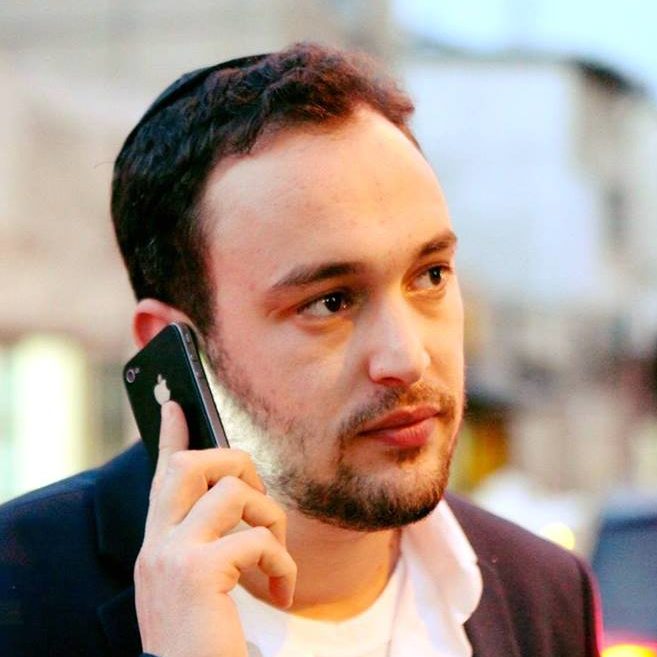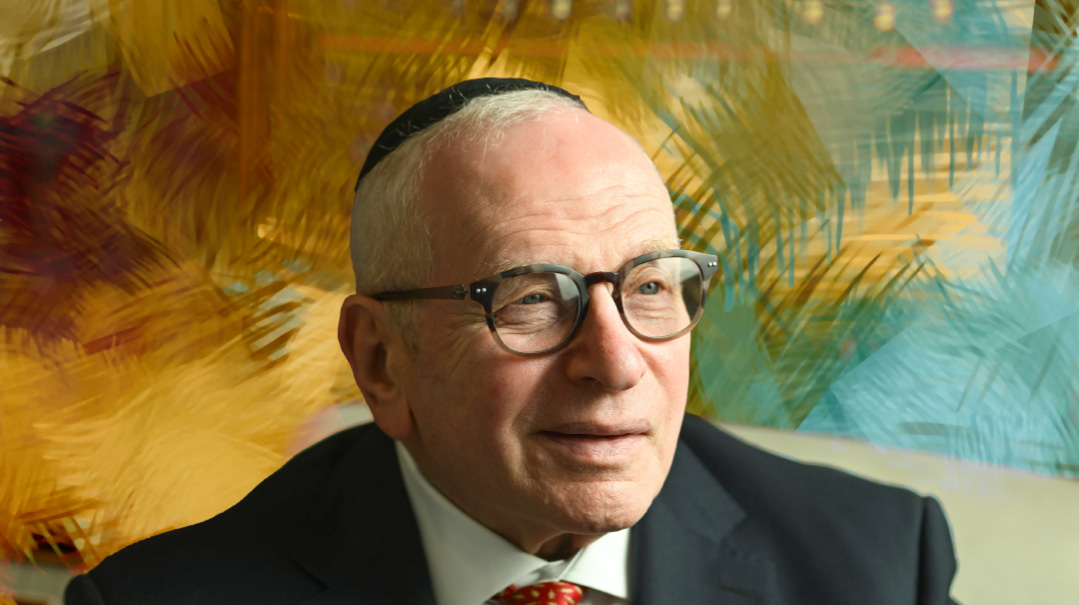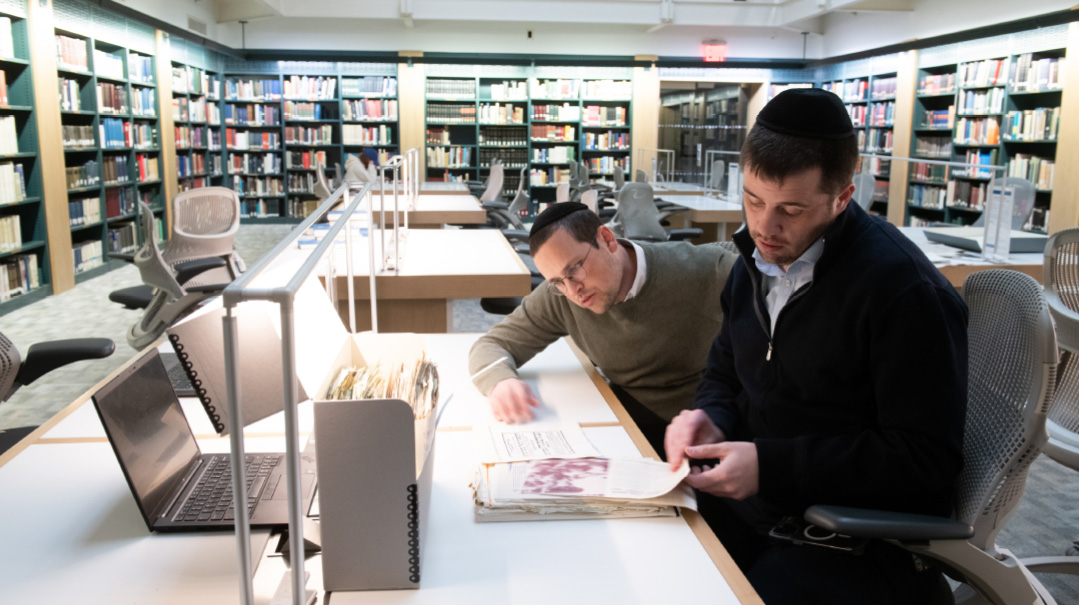Over the Green Line


(Photos: Ezra Trabelsi)
David will forever be haunted by his first night in jail —fear and dread combined with shame and a horrible feeling of failure. His cellmates frightened him. They sat on an old metal bed and stared at him curiously, speaking in a language he didn’t understand. In this European prison, his long peyos and beard, his inability to communicate, and his obvious lack of sophistication pegged him as a novice and not a hardened criminal, but that didn’t make the next four years behind bars any easier to bear.
I met David, who was released from one of Europe’s largest prisons three years ago and has managed to put his life into some semblance of order since then, through a mutual friend last week. Our meeting came on the heels of a spate of arrests that have hit the Israeli news recently regarding young people from chareidi families being used by sophisticated handlers to smuggle drugs and other contraband through airport customs. While the most high-profile of these was the grandson of a frum MK, several others have come forward and described their own harrowing experiences — naive or foolish as these would-be couriers may have been.
David, whose story is reminiscent of the three Israeli bochurim held for over four years in Japan’s Chiba prison before being released in 2012, was reluctant to be interviewed, but he agreed — under cover of anonymity — “for one reason: to explain to anyone who isn’t yet knowledgeable about this horrible experience called prison which destroyed my life. If one person reads this and decides not to fall into the trap I fell into, it will be worth it, even though publicity is bad for me and I’m still trying to rehabilitate myself.”
Taking the Bait
David, 27, grew up in Bnei Brak in a mainstream chassidic family. He went through the system — cheder, yeshivah ketanah — but somewhere along the way while in his teens, he began to face personal challenges with the world in which he was raised.
“It was hard for me in yeshivah,” he relates. “I didn’t connect to the learning, I didn’t feel the flavor of learning. By the time I finally decided to leave yeshivah, it was clear that I was different, unsuited, and at least to me it felt like everyone was pretty quick to give up on me.”
The street and the potential to earn money — even at minimum-wage jobs — lured him. At the same time, his spiritual decline began, even though “I was always careful about the main things. But my family suffered a lot — in my sisters’ school they spoke about ‘that brother’ — and my parents suffered most of all. I was too young and self-absorbed to realize how much pain I was causing them.”
People like David are easy prey for those on the lookout for kids who want to make some easy money and feel like they don’t have so much to lose. David’s “handler” was a man who had joined his kehillah many years before, and who — although accepted and embraced by the community — still maintained ties with criminal elements from his previous life.
He identified me as easy prey,” David remembers. “When he approached me, he asked if I wanted to earn a large sum of money while traveling abroad. In exchange I would have to bring him back a package. It was really tempting — he was talking about $20,000, half of which I’d get even before I traveled. I’d get the rest when I came back with the suitcase. So what could be so bad about getting a free trip to Europe and making lots of money?”
David was no dunce, and realized that he was probably doing “something” illegal but didn’t bother to ask what he would have to transport. “I didn’t think about it. I guess subconsciously I preferred not to think about it,” he says. “It was clear to me that something here wasn’t straight, but I told myself — what could happen to me already?”
When he reached his country of destination, he was asked to pick up a small valise in the lobby of a hotel in the heart of the capital. “The mission was very simple,” he relates. “I picked up the package and waited for instructions. Later, a contact person called me and told me that I could spend two days touring the country, and then I would board a flight that had been booked for me, to another European country, where I would have to leave the package at a certain destination. I thought I was being smart when I asked my contact what exactly I was carrying. He told me I was transporting a few very expensive watches and they were hidden well in the false bottom of the suitcase, that there was no chance in the world that I would be caught.
“You probably wonder how I could have been so stupid,” David continues. “I’ll tell you — there are two types of couriers: those that know full well the ramifications of what they’re doing and are willing to take the gamble, and those like me, who just see the excitement and the money, and are already imagining how all that money is going to change your life. You’re so full of illusions, you don’t even think about the danger. You don’t calculate the risk ratio, certainly not on a conscious level. And if you start thinking about the ramifications, you just suppress it and think it will be fine.”
David boarded the flight and landed at the next destination, never dreaming that these would be his last moments as a free man. When he went through the green lane at customs, one of the customs’ agents motioned for him to stop. “The agents began searching my bag and within seconds found something suspicious,” he recalls. “Of course, I tried to look as indifferent as possible. But the fear overtook me, and the customs’ agents know how to identify it.”
Over the next few minutes David realized they were closing in on him. Within moments, customs’ investigators arrived, and asked him to join them in a side room. A sniffing dog was brought along, and soon the smuggled package was revealed: many kilograms of cocaine and ecstasy.
“When I saw the bags I realized that I was in deep trouble. They asked me who had given me all this stuff, but I was in a foreign country, communicating in broken English, not knowing what I needed to answer and how much information I was supposed to give them. One thing I did know: I was finished.”
Off to the Scanner
What bochurim like David don’t know is that every beginner customs’ agent knows how to detect these young couriers, smugglers who are serving as cannon fodder for sophisticated smuggling networks. Millions of dollars are invested in order to catch the brains behind the huge smuggling operations, and while agents also know that the young couriers are not the main story, that doesn’t exempt them from guilt or spare them from jail time.
Everyone who lands at Ben Gurion airport, pushing a cart piled high with suitcases and metziahs from abroad, is familiar with the inscrutable faces of the customs’ agents. They stand there, at the green line, and every few minutes they motion someone off to the side, to the scanner.
“Our teams are deployed all over Ben Gurion Airport, not only in the green lane. We have undercover agents that are constantly scouting out the area,” Gad Serusi, a veteran customs official, tells Mishpacha. “A lot of our arrests are based on intelligence information provided by the customs’ intelligence department, but sometimes passengers just arouse the suspicion of the agents.”
According to Serusi, suspicion can be aroused in many ways — a person wearing very shabby clothes but a very expensive watch, someone who tries to blend in with a group of tourists, or someone who seems agitated despite trying to look calm. And the most common contraband at Ben Gurion? Cigarettes, many cartons of which are smuggled in by frum Jews, often hidden in tefillin and tallis bags, or in shtreimel boxes.
“Cigarettes in some countries are sold for a quarter of the price they’re sold for here,” says Serusi, “and we understand how tempting it is to bring them in. The law allows a person to bring in just one carton, but of course there will be a difference in the way we treat someone who brings five cartons and someone who brings two hundred.”
While there’s a certain stigma that chareidim are targeted because they’re known to smuggle more, Serusi says that’s an unfounded narrative. “I don’t think chareidim smuggle more or less than any other population sector. I’ve never worked out the statistics on the subject, but every sector has its smugglers. One thing I will say, though, is that there is a trend for young chareidi men to bring in large amounts of cigarettes from abroad, and some of them like to show off the cigarettes they’ve managed to smuggle in — especially travelers coming back from Uman, where cigarettes are so cheap.”
Of course, one can’t compare smuggling in a few extra cases of Ukranian cigarettes to several kilos of narcotics. “We catch these drug smugglers daily, although the smuggling methods have become more sophisticated — whether it’s masking the smells by mixing them with other substances that have dominant odors, like coffee or pepper, or by concealing the source nation from where the materials come from, using connecting flights around the world until they arrive in Israel.”
Tracking down the handlers of these couriers is the work of the customs’ intelligence department, and the scope is huge. On average, customs officials at Ben Gurion catch five drug smugglers a day. Between 2014 and 2017, there were 5,680 confiscations of drugs in Israel’s port of entry, worth a total of NIS 277 million.
“Why Did You Do It?”
David will never forget the horror of that day when he, too, would become one of those statistics. “Right after I was arrested I was taken to a jail cell,” he relates. “The initial goal of the interrogators was to put physical and emotional pressure on me, so that I should reveal who sent me. Well, the long hours sure did the work. I was exhausted, emotionally shattered and the fact that I had no idea what was ahead of me caused me to collapse completely.
“During my first interrogation, a day after I was arrested, they sat me down in front of an interrogator and a translator. Those who already know this world know that you should just admit to what you did, so there is a chance of a reduced punishment. But I had no idea how these things worked, and so I continued to plead innocent for a few days, contradicting myself with various versions of my story, until I finally admitted that I’d fallen victim to a network of drug smugglers. As far as the law enforcement agencies were concerned, the fact that I tried to deny it just worked against me and increased my jail time.”
Three days later, David was brought before a judge and transferred to a large European prison; but because it was obvious that he wasn’t a seasoned criminal, the judge made sure he was sent to a white-collar ward. In a criminal ward, David says his chances of survival — with his obviously Jewish religious look — would have been minimal.
David’s new prison friends were surprised by his chassidic appearance — most of them had never met a chassidic Jew — but they gave him a certain respect and didn’t harass him. His first major challenge was in the dining room.
“This prison didn’t allow any food to be brought in from outside, so I couldn’t get kosher food. I immediately submitted a request to the prison management to allow me to join the group of vegetarian prisoners, so that I would get vegetables, rice, and legumes, and not have to eat treif.” David was fortunate that when he was arrested, he had his tefillin with him. “They were taken to prison with me but I wasn’t allowed to hold on to them,” he relates. “Each morning, I could come to the warden’s office, where he let me put them on under his supervision. Only after more than a year, when I’d forged a certain trust with the wardens, was I allowed to daven in my cell. On Shabbos and Yom Tov I was allowed not to participate in the various activities and workshops, but it was still awful. I was filled with emptiness and despair, and constantly accosted by painful memories of what I’d left behind.
“The beginning was excruciating,” he says. “My phone calls were full of tears and shock. My parents asked me over and over, ‘Why did you do it?’ ‘What were you missing?’ And they blamed themselves — maybe they hadn’t been there for me, given me enough? The truth is that they had given me everything and done everything for me. I couldn’t come to terms with their suffering because of my terrible mistake. I don’t think I’ll ever be able to compensate them for what they went through.”
In prison, David met two others like himself who wound up in similar situations. In one case, the parents had a total collapse. “In my case, my parents rallied to pay my legal fees, which amounted to hundreds of thousands of euros.”
It’ll Be Okay
“Chareidi society, by nature, is forgiving, and the mutual responsibility reaches levels not seen anywhere else in the world,” says Attorney Mordechai Tzivin, an expert on the extradition of incarcerated Jews — Israelis and others — from various countries in Europe.
He says there are some prisons that are as comfortable as hotels. “In the prison in Amsterdam you can find a Mishnayos Kehati in the library, and in some prisons in South America, the prisoners live in villages instead of jails. But some prisons are horrible and absolutely no one should have to go through the experience.”
There’s a paradox, though. “On the one hand, there’s a natural tendency to help the frum Yid who’s gotten into trouble, and on the other hand, we have the responsibility, as a society, to expose and condemn the handlers, even though in many cases we know who these people are. Some of them are identified and even well-known, but the public doesn’t do enough to expose and condemn their actions,” Tzivin says.
Tzivin knows all about criminals embedded within chareidi society looking for innocent youngsters who are willing to break the law for the lure of lots of easy money.
“But there’s something deeper. In chareidi society there is also a feeling that breaking the law, in certain areas, is okay. ‘Yihiyeh b’seder,’ is a very widespread view, and it’s a very problematic component that can bring a person to unpleasant places. If a young man feels that it’s fine to smuggle cigarettes to earn a few hundred shekels, he’s broken the law but feels that it’s okay. So why not close his eyes and take a suitcase, make a stash of cash, and not really think about what’s inside? So the criminals go and hunt down these couriers.”
Attorney Ephraim Demari, one of Israel’s leading criminal lawyers who has handled dozens of cases of drug smuggling, says that the main issue leading chareidi young people into the world of crime and smuggling is the excitement and thrill of making easy money. “These people have an illusion that they can easily deceive the customs’ agents, and that, along with the thought that they can make some quick cash with no reasonable risk, gives them a daredevil thrill.”
There’s another reason too, according to Demari. For many years, customs officials were more lenient with their inspections of the chareidi sector. The assumption was that chareidi Jews don’t get involved in drug smuggling, although this perception is changing as dealers have discovered a tremendous potential in chareidi na?vet? regarding quick profits. Yet most of the young people who fall into these smuggling networks don’t understand the criminal significance of their actions.
“I believe that many of these chareidi smugglers really don’t know what they’re carrying, especially because of the mutual responsibility that this sector feels one for the other — they can’t imagine one of their own will set them up like that. I had one famous case where I was able to get an acquittal after being able to prove that the bochur really had no idea what was inside the suitcase he was asked to deliver, and he only agreed to take it because he felt a need to help a fellow Jew. I asked the judge to accompany me to Ben Gurion airport, where we carried out an interesting experiment. We sent someone with an obvious chareidi appearance to ask other frum passengers to take a valise for him past customs. Ninety percent of those who were asked were happy to oblige without asking any further questions. The judge was stunned.”
Attorney Demari advises travelers to be strict and not to take a package from anyone he doesn’t know well — not an acquaintance from the community or a friend of his parents. “But if you do take something,” he says, “get specific details. Take a copy of his passport or ID card, and try to get him to sign a form that he’s responsible for the package. In any case, you’re supposed to report every package or suitcase you were asked to transfer. If you report it at check-in, the chances of you landing up in an unpleasant situation are significantly lower.”
The Stain Follows Me
Since David’s release, he’s been trying to launch a new beginning, and feels fortunate that he’s set up a private business. “I processed my new life and learned how to survive,” he says. “But most people come back broken and can’t return to a normative life.”
He’s also involved in exposing those elements who infiltrate chareidi society and try to locate young bochurim, people like he was, who will smuggle substances for them around the world.
“I don’t believe the chareidi public is aware enough of the trend,” he says. “There are criminal elements who deal in smuggling across the globe, who’ve latched onto the potential in the chareidim. They’re promising lots of money and more and more young people are falling into their trap.”
Even after serving his sentence and returning to Israel, David continues to deal with the scorched earth he left behind. He’s not allowed entry into Europe for ten years, and can’t get a visa to the United States. Plus, his criminal record follows him.
“But the emotional ramifications are deeper. The difficulty of recovering is sometimes unbearable — the stain continues to follow me and my family and I have my doubts if it will ever pass. I wish I could go back in time and navigate my life on a better path.” —
Dog Days
The Israeli Tax Authority that oversees customs has a special unit of canines and trainers to sniff out drugs and other contraband. The K-9 unit works wherever customs has jurisdiction, from the ports in Ashdod and Haifa, to the border crossings in Eilat and Jordan, and of course, Ben Gurion Airport.
The ITA’s K-9 unit is considered the world’s leading dog-trained unit in the number of apprehensions, according to K-9 unit head Tomer Matza. “We recently arrested someone who tried to smuggle 28 kilograms of drugs concealed in computer screens,” says Matza, who explains that, in fact, most drug smuggling efforts are through the mail, where it’s easier for the smuggling networks to cover the tracks of the sender.
One unique feature of the Israeli canine unit is the dogs’ abilities to identify not only drug smugglers but money smugglers. “We’ve taught the dogs to detect large sums of money by smell,” Matza explains. “Our dogs are the only ones in the world that can detect both drugs and money.”
Locating large sums of money is the dogs’ latest trick. “The dog is trained not to point out every person holding a thousand dollars in his wallet, but only amounts over fifty thousand dollars, the amount one is allowed to bring into the country without reporting it. When the dog singles someone out holding such a sum, we follow him and if he reports the money in the customs’ ‘red line,’ then there’s no problem. If he passes through the green line, he’ll immediately be stopped.”
Matza says the dogs are the best inspectors. “Today we have a technique that we have taught the dogs, whereby the dog pinpoints a suspect, but the suspect isn’t aware that he’s been detected. Then we have to decide how to act. Should we stop the person right away or wait until he tries to go through customs?
People often wonder if K-9 unit dogs sniff out hidden drugs because they want to eat them or because they’re addicted themselves. In fact, the dogs have absolutely no interest in drugs — what they’re actually looking for is their favorite toy (often a towel with which they love a vigorous game of tug-of-war), which the trainer has gotten them to associate with the smell of drugs.
dog days
The Israeli Tax Authority that oversees customs has a special unit of canines and trainers to sniff out drugs and other contraband. The K-9 unit works wherever customs has jurisdiction, from the ports in Ashdod and Haifa, to the border crossings in Eilat and Jordan, and of course, Ben Gurion Airport.
The ITA’s K-9 unit is considered the world’s leading dog-trained unit in the number of apprehensions, according to K-9 unit head Tomer Matza. “We recently arrested someone who tried to smuggle 28 kilograms of drugs concealed in computer screens,” says Matza, who explains that, in fact, most drug smuggling efforts are through the mail, where it’s easier for the smuggling networks to cover the tracks of the sender.
One unique feature of the Israeli canine unit is the dogs’ abilities to identify not only drug smugglers but money smugglers. “We’ve taught the dogs to detect large sums of money by smell,” Matza explains. “Our dogs are the only ones in the world that can detect both drugs and money.”
Locating large sums of money is the dogs’ latest trick. “The dog is trained not to point out every person holding a thousand dollars in his wallet, but only amounts over fifty thousand dollars, the amount one is allowed to bring into the country without reporting it. When the dog singles someone out holding such a sum, we follow him and if he reports the money in the customs’ ‘red line,’ then there’s no problem. If he passes through the green line, he’ll immediately be stopped.”
Matza says the dogs are the best inspectors. “Today we have a technique that we have taught the dogs, whereby the dog pinpoints a suspect, but the suspect isn’t aware that he’s been detected. Then we have to decide how to act. Should we stop the person right away or wait until he tries to go through customs?
People often wonder if K-9 unit dogs sniff out hidden drugs because they want to eat them or because they’re addicted themselves. In fact, the dogs have absolutely no interest in drugs — what they’re actually looking for is their favorite toy (often a towel with which they love a vigorous game of tug-of-war), which the trainer has gotten them to associate with the smell of drugs
(Originally featured in Mishpacha, Issue 713)
Oops! We could not locate your form.







